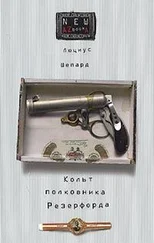Witcover looked puzzled, but Fierman made a noise that seemed to imply comprehension. “How’d he die?” he asked. “The handout says he was KIA, but it doesn’t say what kind of action.”
“The fuckup kind,” I said. I didn’t want to tell them. The closer I came to seeing Stoner, the leerier I got about the topic. Until this business had begun, I thought I’d buried all the death-tripping weirdness of Vietnam; now Stoner had unearthed it and I was having dreams again and I hated him for that worse than I ever had in life. What was I supposed to do? Feel sorry for him? Maybe ghosts didn’t have bad dreams. Maybe it was terrific being a ghost, like with Casper… Anyway, I did tell them. How we had entered Cam Le, what was left of the patrol. How we had lined up the villagers, interrogated them, hit them, and God knows we might have killed them—we were freaked, bone-weary, an atrocity waiting to happen—if Stoner hadn’t distracted us. He’d been wandering around, poking at stuff with his rifle, and then, with this ferocious expression on his face, he’d fired into one of the huts. The hut had been empty, but there must have been explosives hidden inside, because after a few rounds the whole damn thing had blown and taken Stoner with it.
Talking about him soured me on company, and shortly afterward I broke it off with Fierman and Witcover, and walked out into the city. The security cadre tagged along, his hand resting on the butt of his sidearm. I had a real load on and barely noticed my surroundings. The only salient points of difference between Saigon today and fifteen years before were the ubiquitous representations of Uncle Ho that covered the facades of many of the buildings, and the absence of motor scooters: the traffic consisted mainly of bicycles. I went a dozen blocks or so and stopped at a sidewalk cafe beneath sun-browned tamarinds, where I paid two dong for food tickets, my first experience with what the Communists called “goods exchange”—a system they hoped would undermine the concept of monetary trade; I handed the tickets to the waitress, and she gave me a bottle of beer and a dish of fried peanuts. The security cadre, who had taken a table opposite mine, seemed no more impressed with the system than was I; he chided the waitress for her slowness and acted perturbed by the complexity accruing to his order of tea and cakes.
I sat and sipped and stared, thoughtless and unfocused. The bicyclists zipping past were bright blurs with jingling bells, and the light was that heavy leaded-gold light that occurs when a tropical sun has broken free of an overcast. Smells of charcoal, fish sauce, grease. The heat squeezed sweat from my every pore. I was brought back to alertness by angry voices. The security cadre was arguing with the waitress, insisting that the recorded music be turned on, and she was explaining that there weren’t enough customers to warrant turning it on. He began to offer formal “constructive criticism,” making clear that he considered her refusal both a breach of party ethics and the code of honorable service. About then, I realized I had begun to cry. Not sobs, just tears leaking. The tears had nothing to do with the argument or the depersonalized ugliness it signaled. I believe that the heat and the light and the smells had seeped into me, triggering a recognition of an awful familiarity that my mind had thus far rejected. I wiped my face and tried to suck it up before anyone could notice my emotionality; but a teenage boy on a bicycle slowed and gazed at me with an amused expression. To show my contempt, I spat on the sidewalk. Almost instantly, I felt much better.
* * *
Early the next day, thirty of us—all journalists—were bussed north to Cam Le. Mist still wreathed the paddies, the light had a yellowish green cast, and along the road women in black dresses were waiting for a southbound bus, with rumpled sacks of produce like sleepy brown animals at their feet. I sat beside Fierman, who, being as hung over as I was, made no effort at conversation; however, Witcover—sitting across the aisle—peppered me with inane questions until I told him to leave me alone. Just before we turned onto the dirt road that led to Cam Le, an information cadre boarded the bus and for the duration proceeded to fill us in on everything we already knew. Stuff about the machine, how its fields were generated, and so forth. Technical jargon gives me a pain, and I tried hard not to listen. But then he got off onto a tack that caught my interest. “Since the machine has been in operation,” he said, “the apparition seems to have grown more vital.”
“What’s that mean?” I asked, waving my hand to attract his attention. “Is he coming back to life?”
My colleagues laughed.
The cadre pondered this. “It simply means that his effect has become more observable,” he said at last. And beyond that he would not specify.
Cam Le had been evacuated, its population shifted to temporary housing three miles east. The village itself was nothing like the place I had entered fifteen years before. Gone were the thatched huts, and in their stead were about two dozen small houses of concrete block painted a quarantine yellow, with banana trees set between them. All this encircled by thick jungle. Standing on the far side of the road from the group of houses was the long tin-roofed building that contained the machine. Two soldiers were lounging in front of it, and as the bus pulled up, they snapped to attention; a clutch of officers came out the door, followed by a portly white-haired gook: Phan Thnah Tuu, the machine’s inventor. I disembarked and studied him while he shook hands with the other journalists; it wasn’t every day that I met someone who claimed to be both Marxist and mystic, and had gone more than the required mile in establishing the validity of each. His hair was as fine as corn silk, a fat black mole punctuated one cheek, and his benign smile was unflagging, seeming a fixture of some deeply held good opinion attaching to everything he saw. Maybe, I thought, Fierman was right. In-fucking-scrutable.
“Ah,” he said, coming up, enveloping me in a cloud of perfumy cologne. “Mr. Puleo. I hope this won’t be painful for you.”
“Really,” I said. “You hope that, do you?”
“I beg your pardon,” he said, taken aback.
“It’s okay.” I grinned. “You’re forgiven.”
An unsmiling major led him away to press more flesh, and he glanced back at me, perplexed. I was mildly ashamed of having fucked with him, but unlike Cassius Clay, I had plenty against them Viet Congs. Besides, my wiseass front was helping to stave off the yips.
After a brief welcome-to-the-wonderful-wacky-world-of-the-Commie-techno-paradise speech given by the major, Tuu delivered an oration upon the nature of ghosts, worthy of mention only in that it rehashed every crackpot notion I’d ever heard: apparently Stoner hadn’t yielded much in the way of hard data. He then warned us to keep our distance from the village. The fields would not harm us; they were currently in operation, undetectable to our senses and needing but a slight manipulation to “focus” Stoner. But if we were to pass inside the fields, it was possible that Stoner himself might be able to cause us injury. With that, Tim bowed and reentered the building.
We stood facing the village, which—with its red dirt and yellow houses and green banana leaves—looked elementary and innocent under the leaden sky. Some of my colleagues whispered together, others checked their cameras. I felt numb and shaky, prepared to turn away quickly, much the way I once had felt when forced to identify the body of a chance acquaintance at a police morgue. Several minutes after Tuu had left us, there was a disturbance in the air at the center of the village. Similar to heat haze, but the ripples were slower. And then, with the suddenness of a slide shunted into a projector, Stoner appeared.
Читать дальше






